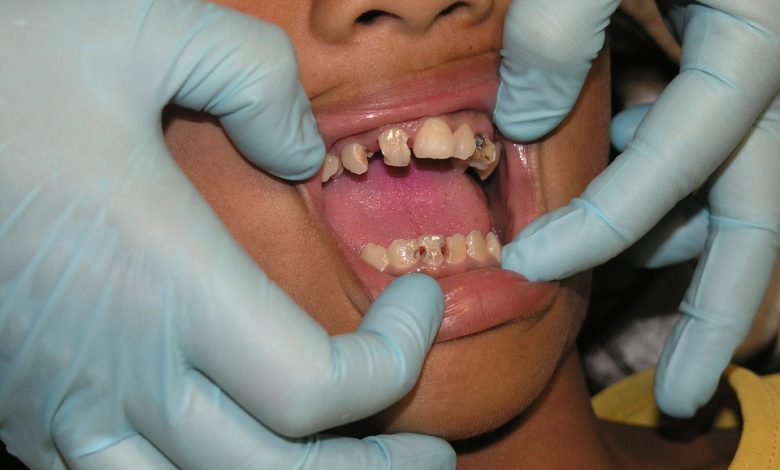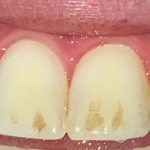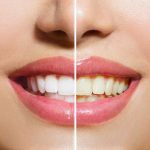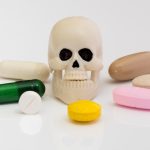7 Top Drugs That Cause Dental Problems

Drug use can have a devastating effect on a person’s health, with many drugs causing damage to vital organs such as the liver, lungs, and heart. However, one area that is often overlooked when it comes to drug use is the damage that can be caused to teeth.
The prevalence of drug damage to teeth varies depending on the drug being used, the duration and frequency of use, and other individual factors such as oral hygiene and genetics. However, drug damage to teeth is a well-documented phenomenon and is seen across different populations, including those who use illegal drugs, prescription medications, and even over-the-counter medications.
There are many drugs that can cause damage to teeth, including illegal drugs, prescription drugs, and even over-the-counter medications. In this article, we shall be looking at the most common drugs implicated in dental problems.
One of the most well-known drugs that can damage teeth is methamphetamine. Methamphetamine is a highly addictive drug that is known for its stimulant effects. However, it is also known for causing serious damage to teeth, a condition known as “meth mouth.” Meth mouth is characterized by severe tooth decay, gum disease, and even tooth loss. The drug causes a reduction in saliva production, which leads to dry mouth, which in turn leads to a buildup of bacteria in the mouth. This bacteria, combined with the high levels of acidity in the drug, can quickly erode tooth enamel, leading to decay.
According to a study published in the Journal of the American Dental Association, as many as 96% of methamphetamine users experience dental problems, with tooth decay being the most common issue.
Another drug that can cause damage to teeth is crack cocaine. Crack cocaine is a highly addictive drug that is smoked and can cause a range of health problems, including damage to teeth. The drug causes a reduction in saliva production, leading to dry mouth, which can lead to an increase in bacteria in the mouth. The high levels of acidity in the drug can also erode tooth enamel, leading to decay.
A study published in the Journal of the Canadian Dental Association found that 54% of crack cocaine users had tooth decay, and 44% had tooth loss.
Prescription medications can also cause damage to teeth. One example is tetracycline, an antibiotic that is commonly used to treat acne and other skin conditions. Tetracycline can cause discoloration of teeth, leading to a yellow or brown appearance. This discoloration can be permanent and is often difficult to treat.
Antihistamines
Antihistamines are another type of medication that can cause damage to teeth. Antihistamines are commonly used to treat allergies and can cause dry mouth, which can lead to an increase in bacteria in the mouth. This can lead to tooth decay and gum disease.
Aspirin
According to a top dentist in dubai, even these over-the-counter medications can also cause damage to teeth. One example is aspirin. Aspirin is an over-the-counter pain reliever that can cause erosion of tooth enamel when taken in high doses. This can lead to tooth sensitivity and decay. One example is aspirin. Aspirin is an over-the-counter pain reliever that can cause erosion of tooth enamel when taken in high doses. This can lead to tooth sensitivity and decay.
Tobacco and Alcohol
In addition to these drugs, there are many other drugs that can cause damage to teeth. These include tobacco, alcohol, and even some herbal supplements. Tobacco use is a major cause of gum disease, which can lead to tooth loss. Alcohol can also cause dry mouth, leading to an increase in bacteria in the mouth and an increased risk of tooth decay.
Herbal supplements
Herbal supplements can also cause damage to teeth. One example is ephedra, which is a stimulant that is commonly used for weight loss. Ephedra can cause dry mouth, leading to an increase in bacteria in the mouth and an increased risk of tooth decay.
How to Reduce The Risk Of Tooth Damage Caused By Drugs
There are several steps that can be taken to reduce the risk of tooth damage caused by drugs. One of the most important steps is to maintain good oral hygiene. This includes brushing teeth twice a day, flossing daily, and visiting the dentist regularly for checkups and cleanings. It is also important to avoid using drugs that are known to cause tooth damage whenever possible.
For those who are struggling with drug addiction, seeking treatment is essential. Treatment can help individuals overcome addiction and reduce the risk of health problems, including tooth damage. There are many different types of treatment available, including behavioral therapies, medication-assisted treatment, and support groups.
Conclusion
Drug use can have a devastating effect on a person’s health, including damage to teeth. There are many drugs that can cause damage to teeth, including illegal drugs, prescription drugs, and even over-the-counter medications. Maintaining good oral hygiene and avoiding drugs that are known to cause tooth damage are important steps that can be taken to reduce the risk of tooth damage. Seeking treatment for drug addiction is also essential in reducing the risk of health problems, including tooth damage.
It is important to note that the damage caused by drug use to teeth can be irreversible in some cases. This is why prevention is so important. By avoiding drugs that are known to cause tooth damage and maintaining good oral hygiene, individuals can reduce their risk of developing tooth decay, gum disease, and other dental problems.
In addition, it is important for healthcare providers to be aware of the potential dental complications associated with certain drugs. This includes educating patients on the risks of drug use and how to prevent dental problems. It is also important for dental professionals to be knowledgeable about the drugs that their patients are taking and how they can affect dental health.





